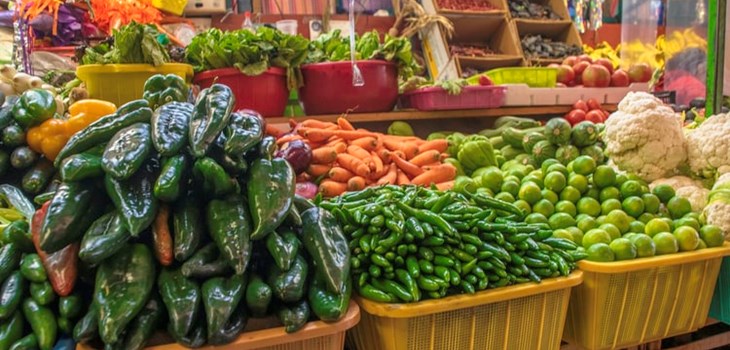10/1/2020
We love that moment when, after putting the groceries away, you get to survey your produce kingdom. For most of us, our thought process concerning produce extends from the grocery store to our favorite fruit bowl. But as we know, the origins of our food go far beyond the grocery store. We need to look to the agricultural fields where Latinx farmworkers, though abused by the industrial farm system, feed the nation.
An astounding 85 percent of the fresh fruits and vegetables we eat are handpicked by people we’ll probably never meet. As Compassion continues to celebrate Latinx Heritage Month, we want to share four ways you can keep your compras compasivas while committing to a plant-based diet. Because the truth of the matter is: We can’t #EatPlantsForAChange without Latinx farmworkers.
1.) Read Your Labels

The Coalition of Immokalee Workers’ (CIW) Fair Food Program is a partnership of farmworkers, retail stores, and farmers that works to ensure fair working conditions and livable wages for farmworkers along the East Coast. The Fair Food Program is proof positive that consumer demand can drive change in the agricultural sector and give farmworkers a voice in decisions that directly affect their livelihood. Another label of note is Regenerative Organic Certified™! Compassion USA is proud to be a founding member of the Regenerative Organic Alliance, which recently launched the highest standard for organic agriculture in the world—including sweeping farmworker protection provisions. Becoming educated about the power of food choice is an imperative step to unraveling the injustices perpetuated by industrial farming!
2.) Start or Join a Co-op

A co-op is a volunteer group that works together for the mutual benefit of all involved—and in this case, a natural food co-op offers produce at great prices, often with an emphasis on farmworkers’ rights. Since October is National Co-op Month, now is the perfect time to find one of these produce providers! This national directory was set up in honor of Kris Olsen, an activist who dedicated his life to helping communities establish buying clubs and educating the public about the possibilities of natural food co-ops. Click around this site not only to find a co-op near you, but also tons of useful information if you’re keen to start one!
3.) Follow the Lead of Workers' Rights Organizations

When it comes to the agricultural revolution, today's youth are leading the charge for fair pay and protections for Latinx farmworkers. Student Action with Farmworkers connects students, advocates, and farmworkers for the creation of a more just agricultural system. To support their work in and out of the fields, they ask that we turn to our own grocery lists. SAF’s buyers guide walks you through tangible steps you can take to support farmworkers in your everyday routines—and which of those routines to break for more compassionate consumption!
4.) Find your local community garden

The American Community Gardening Association promotes community gardens in urban and rural areas. In addition to nurturing relationships and activating spaces, community gardens can nourish communities and cut down on grocery bills. When the hands picking your favorite foods are your own, we can better understand the dedication and resilience shown by the Latinx farmworkers who feed us all. And if your thumb isn't the greenest, talk to your gardening neighbors about purchasing the fruits of their labor! (Pun very much intended.)
Changing how we eat plants we can make a big difference in bringing exploitive industrial practices to an end. When we raise our voices—with our choices and our wallets—we can do more to protect the Latinx farmworkers that feed our families and our neighbors. Through fire and flood, tropical storm and pandemic, these campesinos brave it all so we can #EatPlantsForAChange for the wellbeing of our families, farmed animals, and the planet. So let's do our part to support theirs, as well!
Want more resources like this? Head over to www.plantsforachange.com and get yourself, friends, and family signed up for helpful plant-based tips, tricks, recipes, and news!
